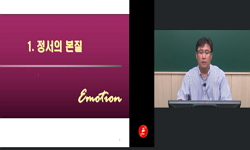The affective development is no less necessary than the cognitive development. On the 7th National Curriculum, the affective education in Korean Language Education has been designed as a independent category for its importance, but it still leaves som...
http://chineseinput.net/에서 pinyin(병음)방식으로 중국어를 변환할 수 있습니다.
변환된 중국어를 복사하여 사용하시면 됩니다.
- 中文 을 입력하시려면 zhongwen을 입력하시고 space를누르시면됩니다.
- 北京 을 입력하시려면 beijing을 입력하시고 space를 누르시면 됩니다.

문학교육과 정의적 발달 : 국어과 교육과정에서의 정의교육 범주에 대한 연구 -내용 체계 및 위계의 문제를 중심으로- = The Category of Affective Education in the Korean Language Education Curriculum
한글로보기https://www.riss.kr/link?id=A40100645
- 저자
- 발행기관
- 학술지명
- 권호사항
-
발행연도
2003
-
작성언어
-
- 주제어
-
KDC
800
-
등재정보
KCI등재
-
자료형태
학술저널
- 발행기관 URL
-
수록면
11-40(30쪽)
- 제공처
-
0
상세조회 -
0
다운로드
부가정보
다국어 초록 (Multilingual Abstract)
The affective development is no less necessary than the cognitive development. On the 7th National Curriculum, the affective education in Korean Language Education has been designed as a independent category for its importance, but it still leaves something to be desired. First, it is less systematic. For instance, the name of category is attitude , this concept is a superordinate concept for some subordinate concepts like interest, motive, value, etc., but attitude is also a subordinate concept. Second, the contents by domain are unbalanced. As compared with the domain of knowledge about Korean Language , other domains, as hearing, speaking, reading, writing , don t have sufficient contents. Thud, the contents by school level have difficulty in distinction partly, because they are divided too much. The affective education in Korean language education has four aspects; the attitude to Korean as a subject; the attitude to Korean as mother tongue; the ability to understand emotional expressions in texts and to express them in texts; the attitude to a narrator or an utterer in texts. The contents of affective education have to be designed including these aspects all. For this change, first of all, the concept of attitude needs to be re-conceptualized for the systematical and comprehensive direction. In addition, we have to consider the staging by school level, it is desirable to combine three levels into a stage.
동일학술지(권/호) 다른 논문
-
문학교육과 정의적 발달 : 감상의 정서적 거리 -교육과정변인이 문학감상에 미치는 영향-
- 한국문학교육학회
- 최지현 ( Choe Ji Hyeon )
- 2003
- KCI등재
-
문학교육과 정의적 발달 : 초등학교 문학교육의 정의적 영역의 문제와 교육방법
- 한국문학교육학회
- 황정현 ( Hwang Jeong Hyeon )
- 2003
- KCI등재
-
문학교육과 정의적 발달 : 중등학교 문학교육에서 정의적 영역 평가의 문제
- 한국문학교육학회
- 한창훈 ( Han Chang Hun )
- 2003
- KCI등재
-
동아시아 아동문학의 회고와 전망 : 동아시아 아동문학교육의 지향점
- 한국문학교육학회
- 신헌재 ( Sin Heon Jae )
- 2003
- KCI등재




 KISS
KISS






